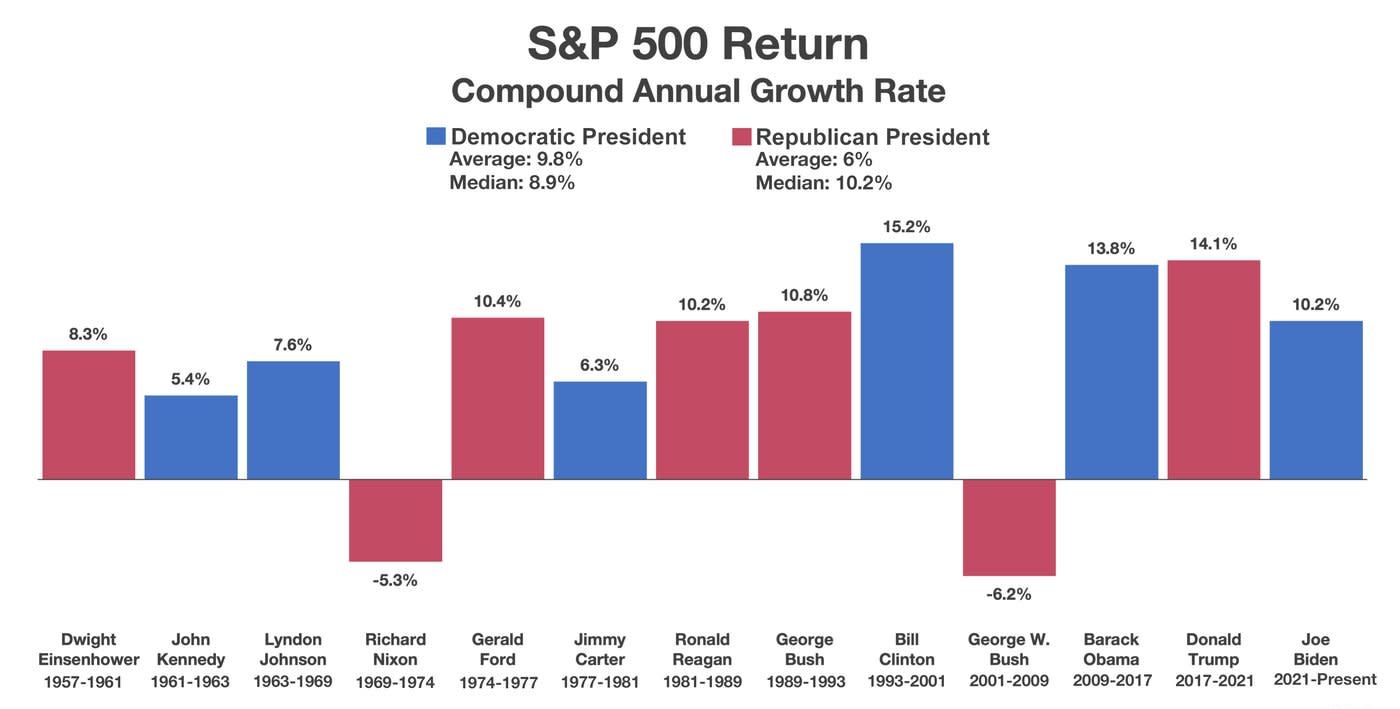Assessing the qualities that make any individual a great president is subjective and can vary widely depending on perspectives and priorities. Supporters of Donald Trump and Joe Biden might attribute the following qualities to their presidencies:
Donald Trump
Joe Biden
- Experience: Joe Biden brought decades of experience in public service to the presidency, having served as a U.S. Senator for Delaware for over 35 years and as Vice President under Barack Obama for two terms. This experience provides him with a deep understanding of the workings of government and the complexities of policy-making.
- Empathy and Compassion: Biden is often praised for his empathy and ability to connect with people on a personal level. This quality has been particularly evident in his interactions with Americans facing various challenges, from economic hardships to the loss of loved ones due to the COVID-19 pandemic.
- Pragmatism: Throughout his political career, Biden has been seen as a pragmatist willing to work across the aisle to find solutions to pressing issues. This approach is often viewed as a valuable asset in a polarized political environment, where compromise and consensus-building are necessary to make progress.
- Leadership Style: Biden’s leadership style is often characterized as steady and calm, which many find reassuring, especially during times of crisis. He has emphasized the importance of unity and healing divisions within the country, striving to bring people together rather than exacerbating partisan tensions.
- Commitment to Democracy and Institutions: Biden has consistently emphasized the importance of upholding democratic norms and institutions, defending the rule of law, and respecting the Constitution. This commitment to democratic values is seen as crucial for maintaining the stability and integrity of the American political system.
- Focus on Key Issues: Biden has prioritized addressing pressing issues such as the COVID-19 pandemic, climate change, racial justice, and economic inequality. His administration has taken significant steps to tackle these challenges through policy initiatives, executive actions, and diplomatic efforts.

 Deciphering the Data: Recent analysis of the S&P 500’s historical performance since its inception in 1957 provides valuable context for understanding stock market returns under Democratic and Republican presidents. The findings reveal intriguing trends: while the average Compound Annual Growth Rate (CAGR) stands at 9.8% under Democratic leadership, it drops to 6% under Republican rule. However, a closer examination of median CAGR figures presents a more nuanced picture, with rates of 8.9% under Democrats and 10.2% under Republicans. These statistics underscore the complexities of market dynamics, challenging conventional partisan narratives.
Deciphering the Data: Recent analysis of the S&P 500’s historical performance since its inception in 1957 provides valuable context for understanding stock market returns under Democratic and Republican presidents. The findings reveal intriguing trends: while the average Compound Annual Growth Rate (CAGR) stands at 9.8% under Democratic leadership, it drops to 6% under Republican rule. However, a closer examination of median CAGR figures presents a more nuanced picture, with rates of 8.9% under Democrats and 10.2% under Republicans. These statistics underscore the complexities of market dynamics, challenging conventional partisan narratives.